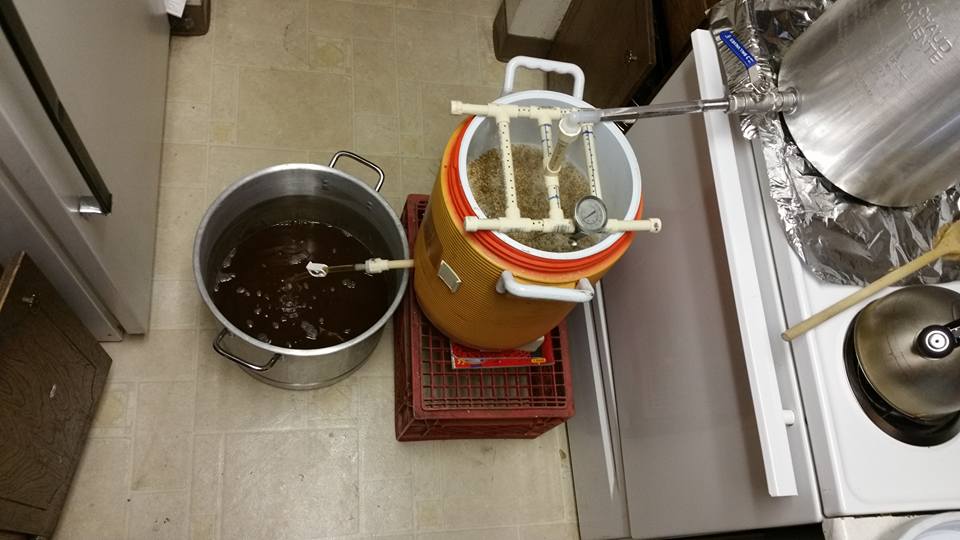Ok, First the recipe:
All Grain
5.5 gallons
4.78% Abv
OG 1.047
FG 1.010
46 IBUs
Color 6.8 SRM
Mash 152 for 60 mins
7.5 lbs Pale 2-row 78.9%
1.5 lbs crystal/caramel 15
.75 oz cascade FWH 60 min
2 oz Amarillo gold 5 mins
2 oz centennial hop stand 15 mins
.25 oz cascade hop stand 15 mins
1 us-05 at 67 degrees F for 10 Days
Dry hop in secondary for 4 days with:
1 oz Centennial
1 oz amarillo gold
So mashed at 152 for a little over an hour (sparge water was still heating up). Lost absolutely no temp in the mash. Then fly sparged, kept grain bed temp 165-170 for about an hour.
Came up with a OG of 1.035 or about 54%. What am I doing wrong here. I thought I had my equipment dialed in.
Also a picture of my setup.
I'm sure it'll be beer, just trying to get better at it.

All Grain
5.5 gallons
4.78% Abv
OG 1.047
FG 1.010
46 IBUs
Color 6.8 SRM
Mash 152 for 60 mins
7.5 lbs Pale 2-row 78.9%
1.5 lbs crystal/caramel 15
.75 oz cascade FWH 60 min
2 oz Amarillo gold 5 mins
2 oz centennial hop stand 15 mins
.25 oz cascade hop stand 15 mins
1 us-05 at 67 degrees F for 10 Days
Dry hop in secondary for 4 days with:
1 oz Centennial
1 oz amarillo gold
So mashed at 152 for a little over an hour (sparge water was still heating up). Lost absolutely no temp in the mash. Then fly sparged, kept grain bed temp 165-170 for about an hour.
Came up with a OG of 1.035 or about 54%. What am I doing wrong here. I thought I had my equipment dialed in.
Also a picture of my setup.
I'm sure it'll be beer, just trying to get better at it.























![Craft A Brew - Safale S-04 Dry Yeast - Fermentis - English Ale Dry Yeast - For English and American Ales and Hard Apple Ciders - Ingredients for Home Brewing - Beer Making Supplies - [1 Pack]](https://m.media-amazon.com/images/I/41fVGNh6JfL._SL500_.jpg)























